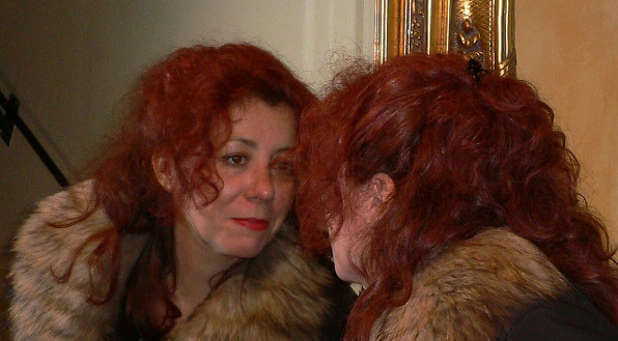One of the important keys to receiving God’s blessing is to see yourself the way He sees you. And how does He see you? As more than a conqueror. As someone who is able to do great things for His kingdom. As His precious child.
If you belong to Yeshua, He doesn’t see you as weak, sinful or as a failure in any way, and He doesn’t want you to see yourself that way, either. When He looks at you, He sees that you are covered by the blood of His only begotten Son. He says, “You are strong, and the word of God lives in you, and you have overcome the evil one” (1 John 2:14).
Be Strong Like Moses
Can you imagine what Pharaoh thought the first time he saw Moses again after four decades? He was the king of an empire, the unchallenged leader of one of the most powerful nations on the Earth. He lived in a huge palace, surrounded by slaves who responded to his every whim. He wore the finest clothes, owned great quantities of gold, silver and jewels—and was even worshipped as a god by his subjects. His word was absolute.
Moses, on the other hand, had been tending sheep in the desert for 40 years. Yes, it’s true that, although he was a Jew, he had been born in Egypt, been adopted by the king’s daughter and grown up in luxury. But those days were long forgotten. Moses was 80 years old when God sent him to free the Israelites. He had fled Egypt 40 years earlier after killing an Egyptian who had been beating a Hebrew. There is no indication that anyone in Egypt remembered or recognized him.
He had left Egypt as a member of the royal family, but he returned as an ordinary shepherd. His face and hands were undoubtedly weathered by years spent tending the flocks of his father-in-law, Jethro, in the deserts of Midian. Here he was, showing up in Pharaoh’s palace, claiming he was a messenger from the one true God, and that he had come on behalf of the Hebrew people.
Pharaoh must have been tempted to laugh out loud. How could a mere shepherd have the nerve to appear before such a mighty king, much less make demands of him? Why, this poor fellow must have spent too much time in the hot sun. Clearly, it had affected his brain.
Moses himself had tried to convince God to choose someone else when the Lord first spoke to him from a burning bush and called him to lead the children of Israel out of captivity in Egypt. “Who am I that I should go to Pharaoh and that I should bring forth the children of Israel out of Egypt?” he asked (Ex. 3:11). Moses also complained, “O my Lord, I am not eloquent, neither before nor since You have spoken to Your servant. But I am slow of speech, and of a slow tongue” (Ex. 4:10).
He even begged, “O my Lord, send, I pray, by the hand of whomever else You will send” (v. 13). Talk about a reluctant hero!
But God had a plan for Moses, who went on to become one of the great heroes in the history of the Jewish people—or, more accurately, one of the greatest heroes in the history of the world. He not only led the Israelites out of Egypt, across the Sinai Peninsula, and into the land God had promised them, but he also became a great leader and lawgiver, establishing a system of laws and a moral code that has been a model for every civilized nation over the past 4,000 years.
God does not see us as the world sees us. Nor does He see us as we see ourselves. {eoa}
Excerpted from A Hope and a Future by Jonathan Bernis (Charisma House, 2016).
A Jewish Believer in Yeshua (Jesus), Jonathan Bernis is president & CEO of Jewish Voice Ministries International (JVMI). He has worked on the forefront of world evangelism since 1984, taking the Good News of Israel’s Messiah to the far reaches of the Earth, to the Jewish people, and also to the nations.















































